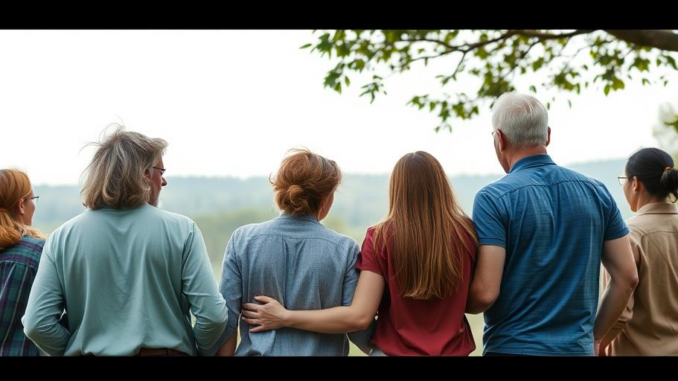
Summary
This article guides you on building a supportive sober friendship group after addiction. It explains the importance of sober friendships, offers actionable steps to find sober friends, and advises on evaluating existing relationships. This network offers crucial emotional support, shared experiences, and accountability, vital for long-term recovery.
** Main Story**
Alright, let’s talk about something really important: building a solid support system when you’re navigating recovery. I mean, let’s be honest, getting sober isn’t a walk in the park. It’s tough, right? And one thing that can make it even tougher is feeling alone. That’s where sober friendships come in – they’re a total game-changer.
Why Sober Friends are Your Secret Weapon
Think of sober friends as your lifeline. They just get it, you know? They understand the battles you’re fighting because they’ve been there, too. That shared experience creates this incredible sense of belonging, and it combats that isolating feeling that often comes with addiction. Plus, they’re not going to pressure you to grab a drink or anything like that.
But it’s more than just understanding; sober friends offer accountability. They’ll cheer you on when you’re doing well, and they’ll be there to pick you up when you stumble. It’s that consistent support that can make all the difference, especially when you’re just starting out and those temptations are hitting hard.
Your Action Plan: Building That Sober Squad
Okay, so how do you actually find these amazing people? It can feel intimidating, sure, but trust me, the rewards are huge.
- Tap into Recovery Programs: Think 12-step programs, support groups, alumni networks – these are goldmines. Go to meetings, get involved, and don’t be afraid to strike up conversations. The shared experience gives you instant common ground, and that’s a fantastic start.
- Get Techy: There are some great sobriety apps and online forums out there. Don’t underestimate the power of connecting with people online. These platforms offer a safe space to share what you’re going through, find local sober events, and just build connections.
- Sober Activities are Key: What do you love to do? Fitness? Art? Hiking? Volunteering? Find groups that share those interests. It’s a natural way to meet people who are also committed to a healthy, sober lifestyle.
- Be Upfront About Sobriety: It’s tempting to hide this part of your life, but trust me, be open about it. It’ll save you a lot of time and energy in the long run. Some people might not be receptive, and that’s okay. You want genuine connections built on honesty.
- Nurture those Bonds: You’ve found some cool people, now what? Stay in touch! Suggest grabbing coffee (non-alcoholic, of course!), going for a hike, or just chatting on the phone. Be the supportive friend you want to have, and those friendships will blossom.
Taking Stock of Existing Friendships
While you’re building new friendships, it’s also important to take a hard look at your existing ones. And I know, this can be tough. But seriously, those friends who are still using? Well, they might be unintentionally sabotaging your recovery. The reality is, their lifestyle can create temptation and trigger cravings.
- Assess, Assess, Assess: Honestly, ask yourself: are these friendships helping me stay sober or making it harder? Are they respectful of my choices, or do they pressure me to cave?
- Boundaries are Your Best Friend: It’s totally okay to set boundaries. Maybe it means limiting contact or turning down invites to places where there’ll be alcohol or drugs. Whatever you need to do, do it. Communication is key. I had to have this conversation with a few of my old college buddies, letting them know that I just wouldn’t be going to the same bars and clubs with them, anymore. I made sure to emphasize that I still cared about them, though.
- Your Sobriety is Non-Negotiable: It sounds harsh, but it’s true. If a friendship is consistently putting your sobriety at risk, you might need to distance yourself. It’s about prioritizing your well-being. Because, let’s face it, relapse is a real threat, and it’s better to be safe than sorry.
Look, building a sober support network is an ongoing thing. It’s a marathon, not a sprint. And it’s perfectly fine to ask for professional help if you’re struggling. Therapists and counselors can give you the tools and support you need to navigate the social challenges of recovery. You’ve got this! And remember, you’re definitely not alone.


Be the first to comment